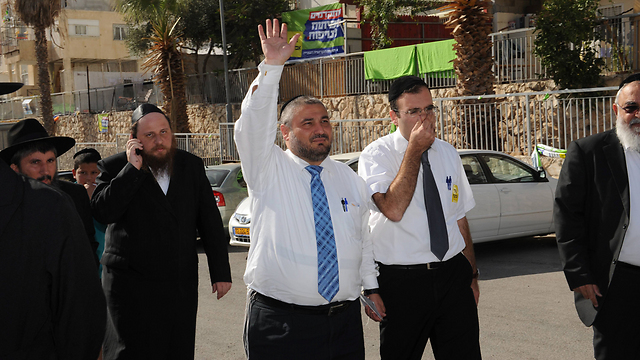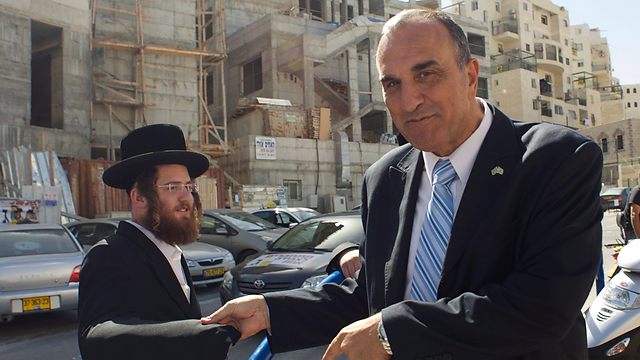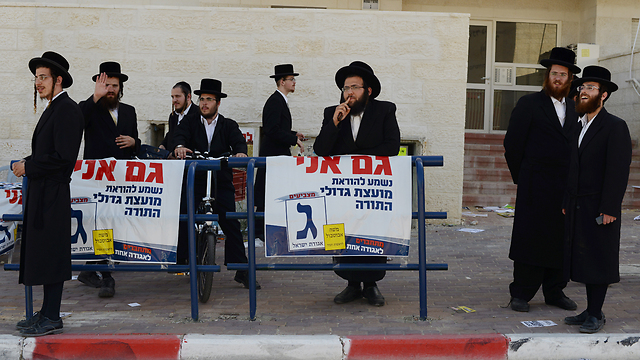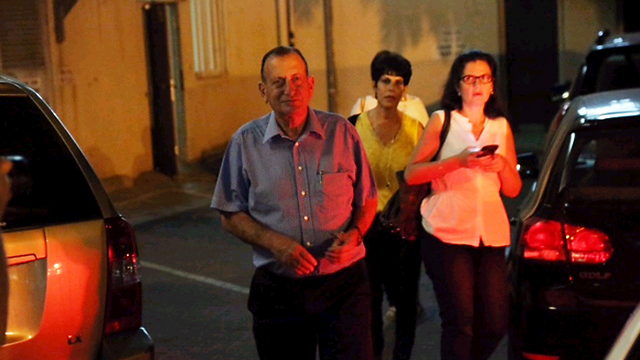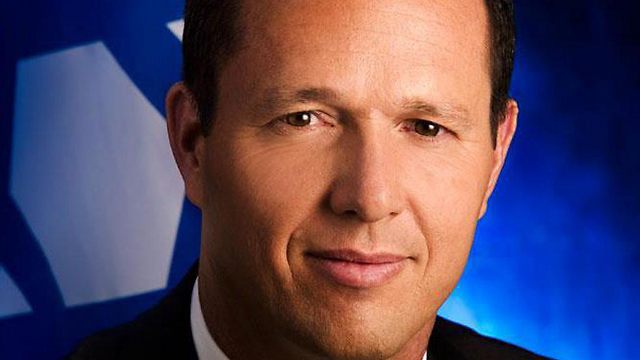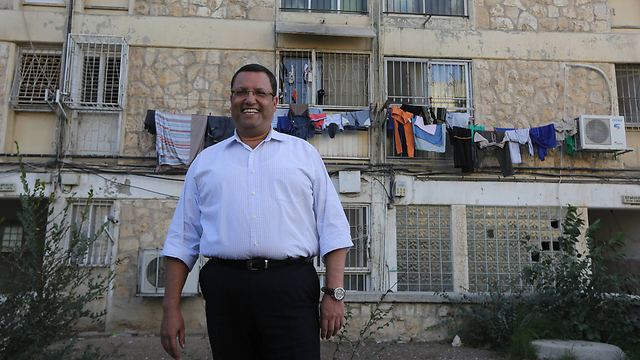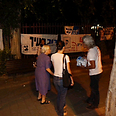
Beit Shemesh mayoral race reflects city's haredi, secular conflicts
Torn city showcases tight, crucial race for office, reflecting internal conflicts between secular, haredi Jews; national polling turnout low
The sign's authenticity has already been questioned – haredi residents claim secular provocateurs fabricated it to create hype around Tuesday's municipal election. Either way, Beit Shemesh is, without a doubt, in the midst of a tight fight for mayoral success that holds within it the innate impasse between the city's secular residents and its haredi ones.
Related stories:
According to assessments, 45% of Beit Shemesh residents are haredim, some of whom anti-Zionists.
Beit Shemesh's current mayor, Shas' Moshe Abutbul, drew criticism when he didn't respond to violence from extremist factions. Moderate religious and secular residents are running almost unanimously behind one candidate – Eli Cohen.
Following public outrage Abutbul raised when he remained apathetic when an extremist haredi spat on a girl he considered to be "immodest", moderate and secular resistance in the city grew. "We won't forget how he spat on our children until violence from extremists became a norm here," said a young activist who supports Cohen outside a polling station.
"All this spitting does not at all reflect life in this city," said an Abutbul supporter. "Anyone who says these extremists get support from a Shas mayor is speaking nonsense. Beit Shemesh has become a symbol for the fight between secular and haredi people just because of the media."
With a 45% voter turnout registered at 7:00 pm Tuesday, the call is close in Beit Shemesh. Meanwhile, the national voter turnout remains low, which may majorly affect results.
31.% in Tel Aviv; 35.89% in Jerusalem
The low turnout of voters in the two main cities – Jerusalem and Tel Aviv – established the race for office as unexpected.
In the capital, where Nir Barkat and Moshe Leon are running for mayor, 35.89% of registered voters exercised their right to vote. In Jerusalem's haredi neighborhoods, voter turnout was 70%, whereas ballot polls in secular neighborhoods saw 30-50% turnout. Voting rates among east Jerusalem's Arab residents were lower than 1%.
In Tel Aviv, voting rate was at 31% as the polls closed. Voter turnout in Beersheba was 39.8% and in Haifa 45%.
Nationally, the general voting rate improved towards the evening at 42.6%, a 10% leap from the 7:00 pm results. Interior Minister Sa'ar assessed that the national voting rate will be similar to that of 2008, when it stood at 51.8%.
Moran Azulay, Elior Levy, Itamar Fleishman, Yoav Zitun, Ilana Curiel, Shahar Chai, Gilad Morag, Ahiya Raved, Itay Blumenthal, Hasan Shaalan, and Noam (Dabul) Dvir contributed to this article
- Receive Ynetnews updates directly to your desktop










